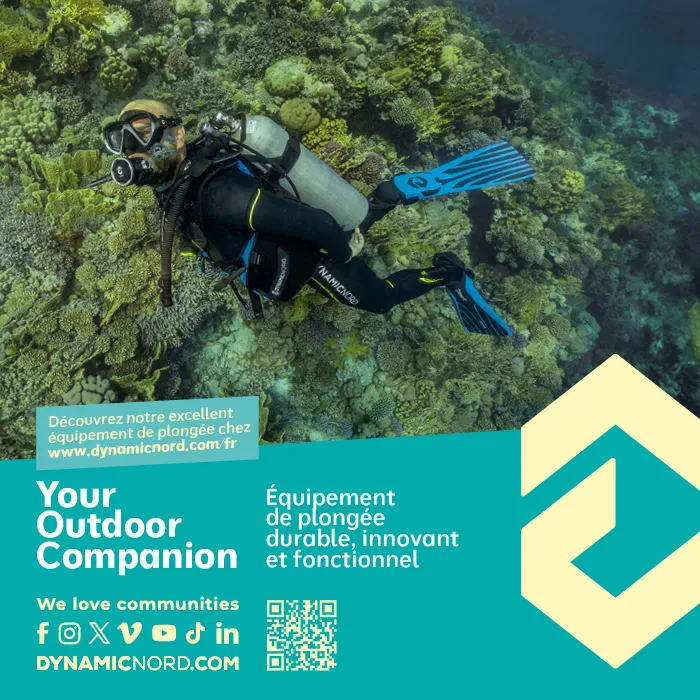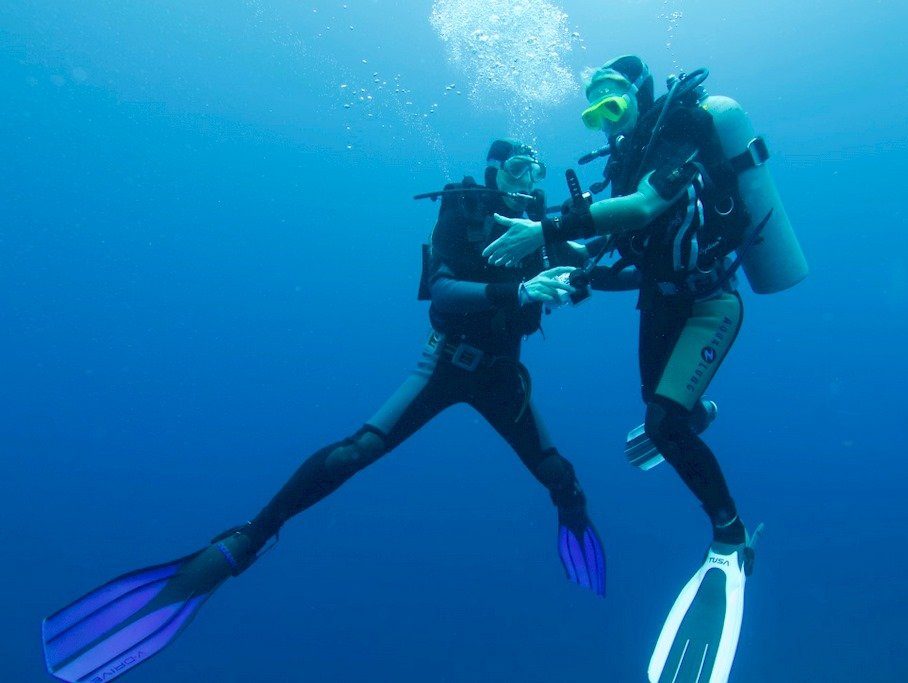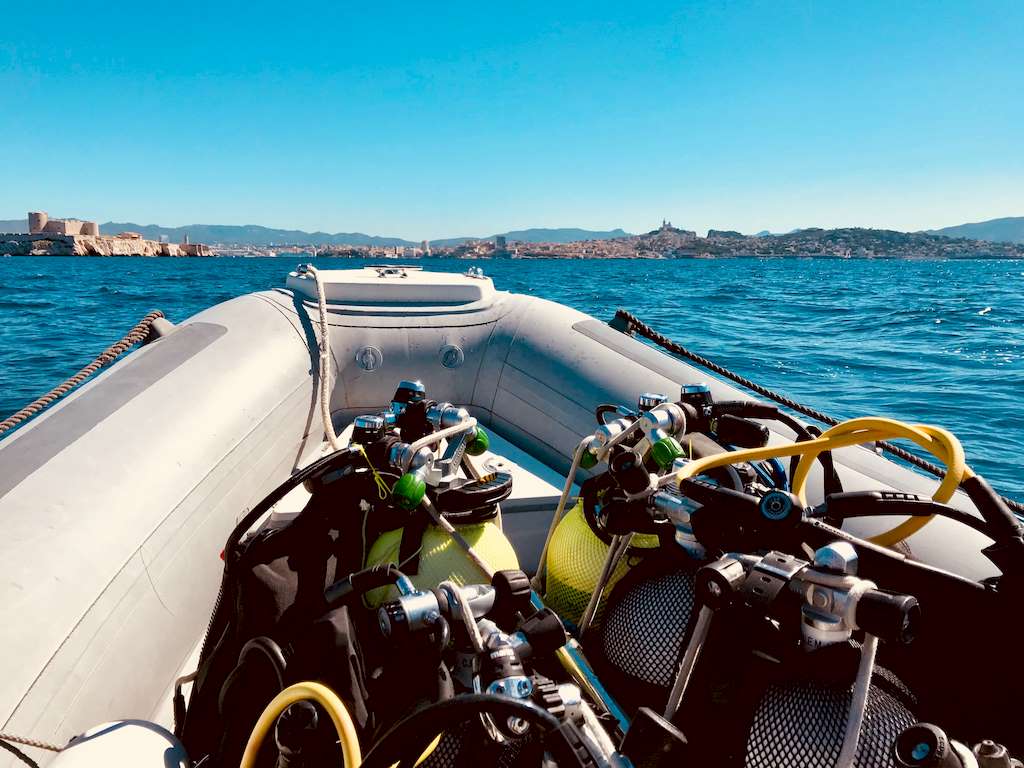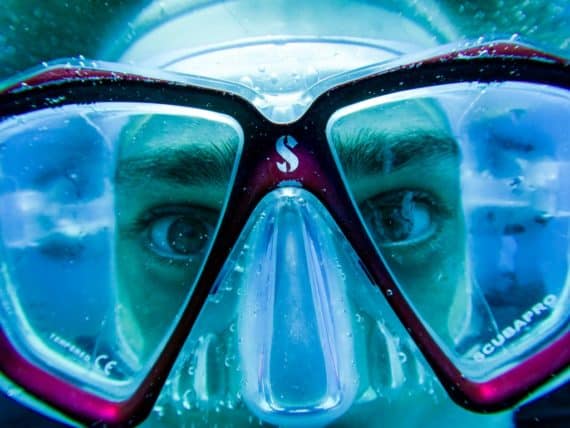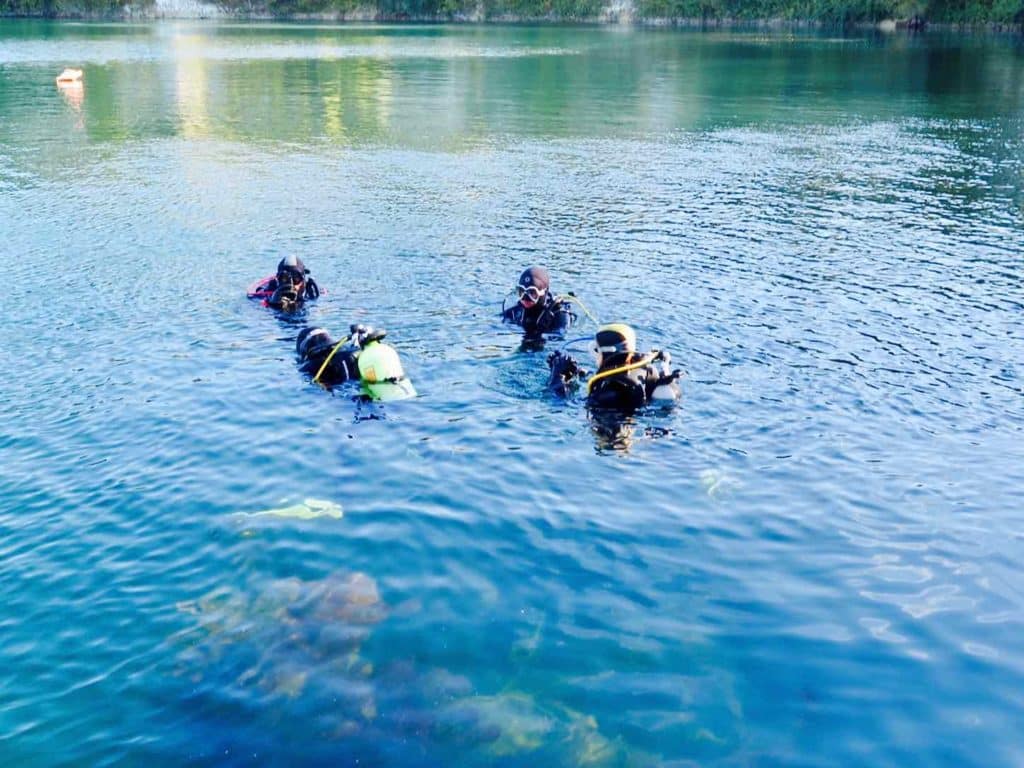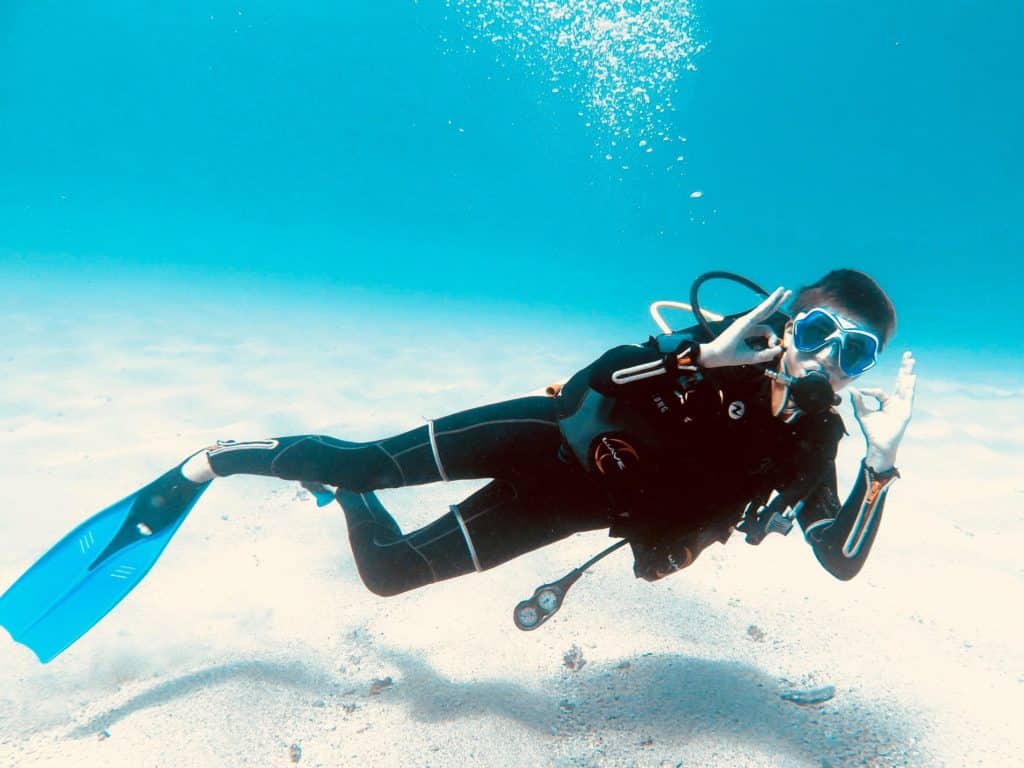Should you know how to swim to dive?
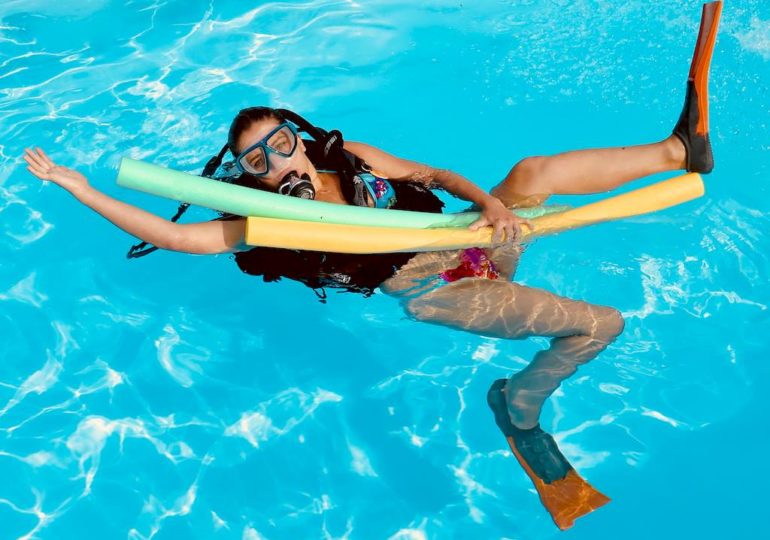
Should you know how to swim to dive? If the question may seem stupid or obvious to some, it is worth asking and does not necessarily lead to a simple and clear answer.
Having practiced swimming in competition for years and followed a lifeguard training before starting to dive. This question of the usefulness of bringing together two aquatic activities that I like very much seems interesting to me. This because in many diving clubs and / or dive shops, it is customary to spend very (too much) long hours perfecting one’s swim during scuba diving training.
Swimming training for divers
Sometime you can hear them grumbling in the pools in non profit clubs. The divers are not always happy with these extended swim training … And they may be right. Because it’s probably fair to say that you do not have to be a good swimmer to be a good diver. ( It reminds me an instructor I met who did not know how to swim very well)
Of course, as diving is practiced in the marine environment where we do not have feet, it is obviously useful and full of sense to be able to have a minimum of ease in the water. And therefore to know how to swim a minimum to dive
However, it is clear that the movements, breathing and equipment are very different in swimming and diving.
Movements
Fast and energetic in the world of swimming, diving. Movements will be slower (although sometimes a little vigorous if you have to fight a moment against the current).
Breathing
Lively, rhythmic and more superficial in swimming. The breathing will tend to adopt a natural rhythm and to privilege long and deep breaths in diving.
Equipment
Almost absent in swimming (a swimsuit, a hat and swimming goggles). The diving equipment will be consistent. And will give divers less ease of movement but increased buoyancy. They will have to add lead to immerse themselves. And discover the wonders of the underwater world.
Improving your swimming technique, lost of time or real interest to swim to dive?
Well, it will be understood very quickly that it is not necessary for a diver to know how to swim a perfect crawl. But certainly useful to swim a bit in case he should happen to fall in the water.
This may be the only time (with the exception of exercises requested by certification agencies) where the diver will have to use swimming techniques.
In my opinion, you have to swim a minimum. Maybe just to feel comfortable near water and / or on a boat. I don’t think it’s useful to practice for a long time swimming techniques.
In terms of minimum skill, it seems reasonable to me to ask the diver to swim 100 meters without stopping in the swim of their choice.
And the instructors do they have to swim to dive?
Some dive instructor trainings require quite selective swimming skills such as a timed 800 meters for example.
So obviously, in respect of my career, this exercise is realy a no brainer for me who was a swimmer well before a diver. I do not understand the interest to swim forever, or at least 15 to 20 minutes in a pool before starting the real diving training.
The argument is often that the instructor must be able to rescue someone. I confess that if one day I had to assist someone so far away, except in cases of “force majeure”, I will take a boat that is much faster and safer for all … While I am lifeguard !
Remember that it is necessary above all to avoid over-accidents
Because in practice, with a little honesty, how many instructors would still be able to achieve a swim of several hundred meters to a victim ? (Probably drowned on their arrival). Then without arriving breathless?
And how many of those who would succeed in this effort could, once on the spot, assist with ease without putting themselves in danger?
Swimming back and forth in a pool, a useless practice?
Yes and no
Yes with regard to the pure practice of scuba diving which requires very different skills and reflexes
(Not to mention that it discourages people who do not necessarily understand the interest of the exercise that does not contribute anything in terms of diving and who prefer to go to more targeted training courses)
No, because it’s a way of working on your breath and your physical condition … and then, it allows the instructors to talk together while the candidates warm up (and yes, we did it all)
Is there an alternative to these swim to dive lessons during dive training?
If, in my opinion, the learning of swimming techniques in a dive training is not an essential point. On the other hand, you have to know how to kick with your fins!
Therefore, why not focus on the kicking and its very useful variant to not harm anything ? The so-called “frog” technique as used in DIR style techniques
Let’s jump in the water or swim to dive?
And above all … do not forget to be happy
Join my Facebook page for more sharing
Helene
>>> KEEP IN TOUCH

